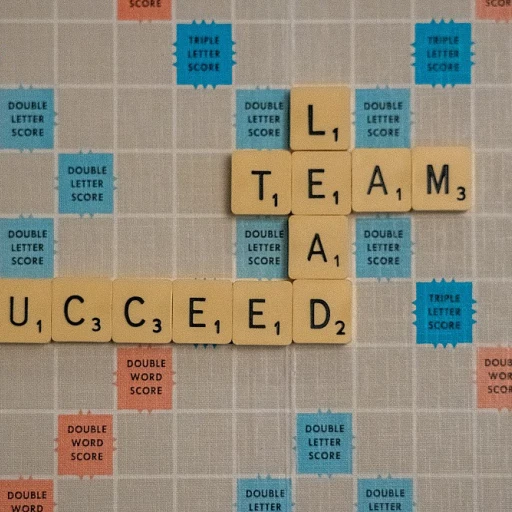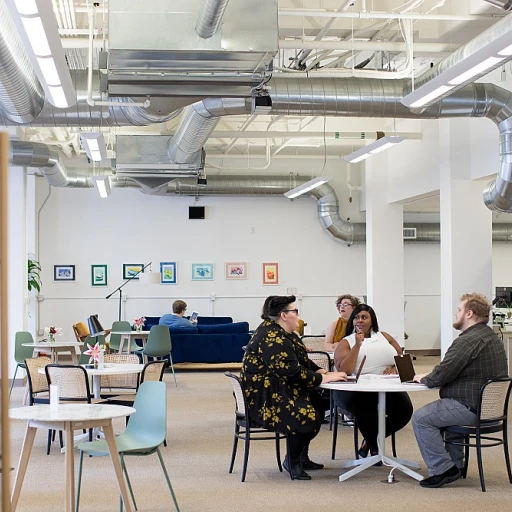
Defining a Preliminary Interview
Setting the Stage for a Successful Hiring Journey
In the vast landscape of human resources, the preliminary interview plays a pivotal role in kickstarting the recruitment process. Often seen as the first real interaction between the company and potential candidates, preliminary interviews set the stage for the rest of the hiring journey. This initial phase is crucial in identifying the right fit for the organization by assessing candidates' skills, experience, and cultural alignment with the company. It is during these early stages that both the employer and candidate start discerning whether they're a good match. Preliminary interviews are essential in pre-screening candidates to streamline the hiring process. By effectively filtering out applicants who do not meet the baseline qualifications or fit the company culture, hiring managers can focus their efforts on candidates who have a higher potential to thrive in the position. This approach not only saves time but ensures that the recruitment process is more efficient and productive. In essence, a preliminary interview is a critical milestone in the path to making informed hiring decisions. While technological advancements continue to evolve and shape the way interviews are conducted (explored in upcoming sections), the core objective remains unchanged: facilitating a thorough assessment of each candidate to ensure a strong match for the role and the organization. For further understanding of how preliminary interviews fit into broader employment practices and regulations, delve into insights on Tennessee's at-will employment status here.The Importance of Preliminary Interviews in HR Tech
The Significance of Preliminary Interviews in Modern HR Tech
In the evolving landscape of human resources, preliminary interviews have become a cornerstone of the recruitment process. These initial interactions serve as a critical screening tool, allowing hiring managers to assess candidates' suitability for a job role before advancing them to more in-depth interviews. By leveraging preliminary interviews, companies can efficiently streamline the hiring process, saving both time and resources.
Preliminary interviews, often referred to as pre-screening interviews, are designed to evaluate a candidate's basic qualifications and fit within the company culture. This stage is crucial for identifying candidates who possess the necessary skills and experience for the position, ensuring that only the most promising individuals proceed to the next phase of the recruitment process.
Moreover, preliminary interviews play a vital role in enhancing the candidate experience. By providing a structured and consistent approach to assessing candidates, organizations can ensure that all applicants are evaluated fairly and transparently. This not only improves the overall recruitment process but also helps in building a positive employer brand.
Incorporating technology into preliminary interviews has further amplified their importance. Video interviews, for instance, offer a flexible and efficient way to conduct pre-interviews, allowing hiring managers to connect with candidates regardless of geographical constraints. This technological advancement not only speeds up the hiring process but also broadens the talent pool, enabling companies to find the best fit for their organizational culture.
For more insights into how preliminary interviews fit into the broader recruitment strategy, consider exploring resources on verifying employment through verbal communication.
Key Components of a Successful Preliminary Interview
Essential Elements for Conducting a Pre Interview
Understanding the core components that contribute to a successful preliminary interview is vital for refining the recruitment process. These elements help in assessing candidates effectively, ensuring they are a good fit both in terms of skills and cultural alignment with the company.- Structured Interview Questions: A set of pre-designed questions tailored to the role is crucial. They should cover fundamental skills and experience relevant to the position, allowing the hiring manager to pre screen candidates efficiently.
- Assessing Cultural Fit: The preliminary interview serves as a gateway to evaluate if the candidate aligns with the company culture and values. Understanding what makes an individual thrive within an organizational culture can prevent future hiring mismatches.
- Video Interviews: Incorporating video technology can complement traditional screening methods. Video interviews allow hiring managers to evaluate communication skills and professionalism from any location, enhancing the candidate experience.
- Efficient Time Management: A focused interview time helps streamline the hiring process. Keeping interviews concise ensures that both the candidate and the hiring team focus on the critical aspects of the role and the fit within the company.
Technological Tools Enhancing Preliminary Interviews
Leveraging Technology to Improve Preliminary Interviews
In the world of human resources technology, conducting interviews has evolved significantly with the help of advanced tools. These technological advancements are not just increasing efficiency but are transforming how preliminary interviews are conducted. One of the most significant technological interventions is the advent of video interviews. This allows recruiters to conduct pre-screening processes without the logistical constraints of in-person meetings. Not only does it save time, it also offers a glimpse into a candidate's communication skills and cultural fit from the comfort of their environment. Recruitment platforms equipped with artificial intelligence (AI) analyze patterns in candidate responses to pre-interview questions. This helps assess candidates' fit quickly, ensuring that interviewers can focus on the most promising candidates for the role. These tools aid in narrowing down large pools of candidates efficiently by automating the preliminary screening interview processes. Another pivotal tool is scheduling software, which simplifies the appointment-setting phase. This significantly reduces the time hiring managers spend trying to coordinate times with candidates, making the hiring process more seamless and focused on candidate experience. Also, natural language processing technologies can analyze candidate responses to open-ended questions. This provides insights into a candidate's personality and potential contribution to organizational culture. While the benefits of these technological tools are substantial, recognizing their role in the pre screen phase is key. They enhance not only the efficiency but also the quality of the recruitment process, leading to better hiring decisions and ultimately contributing to a stronger company culture.Challenges in Conducting Preliminary Interviews
Overcoming Hurdles in Preliminary Candidate Assessments
Conducting preliminary interviews as part of the recruitment process can be fraught with challenges. Screening interviews are pivotal in assessing candidates, yet they often come with their own set of obstacles. Understanding these challenges is crucial for improving the hiring process and ensuring a good fit between candidates and the organizational culture.
1. Time-Intensive Screening Process: Hiring managers frequently face time constraints when conducting pre-interviews. Evaluating numerous candidates for a single position can stretch resources thin, making it difficult to dedicate enough time to each interviewee. This can lead to rushed decisions, negatively impacting the outcome of hiring decisions.
2. Consistency in Interview Questions: Another significant challenge is maintaining a consistent line of questioning across interviews. This is essential to accurately compare candidates and assess skills and cultural fit relative to the job requirements. Inconsistent interview questions can lead to biased or incomplete assessments, affecting the overall candidate experience.
3. Technological Limitations: While technological tools have enhanced pre-screenings, they also introduce new difficulties. Candidates might encounter technical issues during video interviews, which could disrupt the process or create an unfavorable impression of the company. Ensuring that both interviewers and candidates have access to reliable technology is vital to smooth out these hurdles.
4. Identifying Unconscious Bias: Detecting and mitigating unconscious bias remains a persistent struggle in the hiring process. It can be difficult to ensure that pre-screening interviews are fair and objective. Biases can inadvertently influence hiring managers' perceptions, leading to suboptimal recruitment outcomes.
5. Balancing Efficiency and Candidate Experience: Striking the right balance between an efficient pre-screening process and a positive candidate experience can be challenging. While the goal is to streamline hiring, it is equally important to ensure candidates feel valued and engaged throughout the recruitment process. A negative candidate experience can harm the company’s reputation.
Continually evaluating and refining the pre-interview process, along with leveraging appropriate tech solutions, can help overcome these barriers, enhancing both the efficiency and effectiveness of recruitment efforts.













